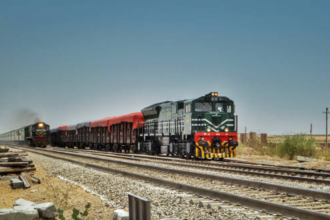Designed for recycling, millions of UK waste tires are instead being burned in improvised furnaces in India. This habit seriously compromises health and causes great harm to the surroundings. Despite laws and industry awareness, many exported waste tires enter the Indian market.
Elliot Mason, owner of one of the most significant tire recycling facilities in the United Kingdom, stated that this is an industry knowledge-based. “I don’t imagine any person in the business not knowing it’s happening,” he remarked. Many UK tire exporters use legal gaps to transfer enormous volumes of trash tires overseas without appropriate control.
How Should Tyres Be Recycled?
Drivers pay a nominal recycling fee—usually between £3 and £6 per tire—when they replace their tires to guarantee correct recycling. Waste tires are typically turned into rubber crumbs used for playground floors and equestrian flooring in the UK.
The UK produces roughly 50 million waste tires (about 700,000 tons annually), of which almost half are transported to India. Official records indicate that tires are transferred to approved recycling sites, yet many wind up elsewhere.
Although the UK has the infrastructure to recycle more scrap tires, local processing costs often outweigh exporting ones. This causes companies to choose the more profitable but environmentally damaging path of global shipping.
Where do the Tyres end up?
Tires are crushed into big bales before leaving the UK, apparently meant for approved Indian recycling facilities. However, industry insiders believe that over 70% of these waste tires are pyrolyzed in temporary industrial facilities instead.
Pyrolysis is the 500°C heating of tires in an oxygen-free atmosphere. This procedure removes carbon black, oil, and steel—a component used in many sectors. However, these frequently poorly controlled plants create significant environmental and health hazards.
Tracking their destination proves almost impossible, even if official documentation says these tires will be handled in approved facilities. Once they reach India, many shipments are diverted, so responsibility becomes somewhat tricky.
What revelations did investigators find?
Tracking devices were inserted inside tire shipments to monitor their path. Eight weeks later, they landed at an Indian port and were driven 800 kilometers inland. Drone footage showed remote, unapproved establishments stockpiling and burning UK scrap tires.
Although one plant operator argued their activities were neither illegal nor dangerous, environmental experts vehemently disagree. An ecological lawyer from India claims that the up to 2,000 pyrolyzed plants found in the nation are run illegally.
Moreover, these improvised installations lack the required safety precautions to prevent harmful emissions from being released upward. The shockingly high pollution levels near these factories seriously endanger local populations and workers.
What environmental and health effects result?
Near Mumbai, in Wada, soot-covered properties with dead vegetation and contaminated streams draw attention to the environmental damage. Villagers claim eye difficulties, coughing constantly, and respiratory problems. “We want these businesses relocated from our village; otherwise, we will not be able to breathe freely,” a local said.
Imperial College London scientists warn that long-term exposure to pyrolysis emissions can cause several malignancies as well as respiratory, cardiovascular, and neurological problems. Two adults and two children were murdered in January by an explosion at a pyrolysis plant handling European trash tires. Seven plants closed after a local minister vowed action following the incident.
Although this pollution’s long-term effects are unknown, preliminary research indicates that broad ecological damage could result from soil and water contamination from pyrolyzed wastes. Heavy metals and poisons can endanger people, wildlife, and agriculture.
Why are UK businesses still sending tires to India?
Many UK companies find exporting scrap tires to India more profitable than investing in costly shredding equipment. Mason says his business is responsible for guaranteeing appropriate disposal and refuses to participate. Tracking tire bales once transported can prove difficult, though.
While smaller businesses can seek a T8 exemption, allowing them to handle up to 40 tonnes of tires weekly, larger enterprises with tight environmental permits are routinely examined. Some exporters, meanwhile, are significantly beyond this restriction.
According to an undercover investigation, one trader exported 250 tonnes of scrap tires in a week, five times his allowed level. Another claimed to deliberately transport UK waste tires for pyrolysis, despite legal documentation implying otherwise. “There are plenty of companies doing it… 90% of English people in this business are doing it,” he claimed.
Furthermore, the supplier chain lacks transparency. Many UK tire retailers sell their goods to brokers, who resell them to Indian importers. This multi-stage process makes it challenging to find who finally disposed of these discarded tires illegally.
The Government’s Actions Regarding It?
The UK government is considering changes to waste exemption. A spokesman said, “This government is committed to transitioning to a circular economy, moving to a future whereby we keep our resources in use for longer while protecting our natural environment. “
Campaigners contend, meanwhile, that these steps fall short. Some business analysts believe enforcing current rules and stricter fines for unlawful exporters would be more effective. Others advocate an absolute prohibition on waste tire exports to nations with lax environmental laws.
Australia stopped baled tire exports in 2021 after learning none were reaching their stated locations. Tyre Stewardship Australia’s CEO, Lina Goodman, said, “100% of the material was not going to the destinations that were on the paperwork.”
Environmentalists contend that the UK government must intervene to stop the export of UK waste tires for pyrolysis. Georgia Elliott-Smith, the creator of Fighting Dirty, said it was a “massive unrecognized problem” and demanded that tires be labeled as hazardous trash.
Growing evidence of environmental and health risks calls for stricter rules and improved enforcement to prevent UK waste tires from fueling pollution, thereby compromising lives overseas.
What Should I Do Next?
Experts advise a more open tracking system for exporting tires to address this problem. This can require all exported waste tires to be GPS-tracked, ensuring they reach approved recycling facilities instead of uncontrolled pyrolyzed facilities.
Incentives should also be given to promote domestic tire recycling in the United Kingdom. Should the government provide incentives for tire shredding and processing, local recycling may become more profitable, and the need for exports would be lessened.
Stricter rules, improved enforcement, and more investment in domestic recycling facilities can help stop the illicit disposal of UK discarded tires and save the environment.








